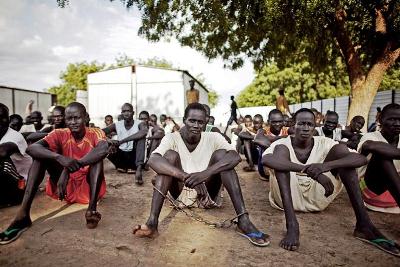S. Sudan activist criticize court’s conviction of 12 over graft
June 25, 2016 (NAIROBI) – South Sudanese civil society activists have described as “unfair” the recent court decision to convict 12 civil servants and four foreigners working at the presidency over the $14 million scandal.

Gabriel Dak, a South Sudanese activist, said the High Court ruling was unjust.
“We doubt whether due process of the law was followed to the letter and spirit. All we know is justices and the rules of law have long been defeated in South Sudan,” said Dak.
He claimed the country’s judiciary had long been compromised.
“The judiciary should overhaul and make a landmark ruling to gain trust and restore confidence of citizens,” Dak said.
The secretary general for Congress of South Sudanese Patriots for Peace and Reconciliation, Thor Yoanes wondered how court could convict people when judges were on strike the very day the ruling was made on June 13.
“They [judges] could have put the strike on hold and allow the defenders’ counsels to make their appeal in the Supreme Court within the stipulated time frame,” he said.
Yoanes said it was “unconstitutional” for judge to go on strike shortly after they made a ruling on such a vital case.
“We are calling on South Sudan government to handover the four convicted Kenyan to their government,” he said, adding that it would strengthen relations between the two.
A 2010 research conducted by the New York-based Human Rights Watch on the state of prisons in the world’s youngest nation, revealed shocking details on the violations of the due process rights, patterns of wrongful deprivation of liberty, and the harsh as well as unacceptable prison conditions in which the detainees lived.
As of November 2011, said the rights body, 93% of the prison population were male, and 30% of inmates were on remand, awaiting completion of police investigations or trials.
(ST)
